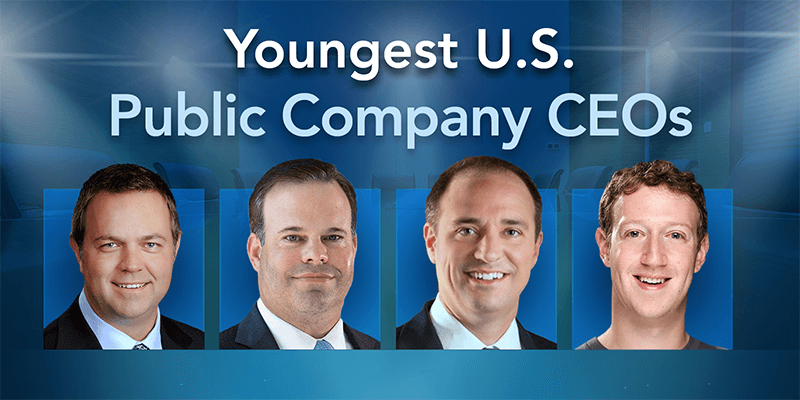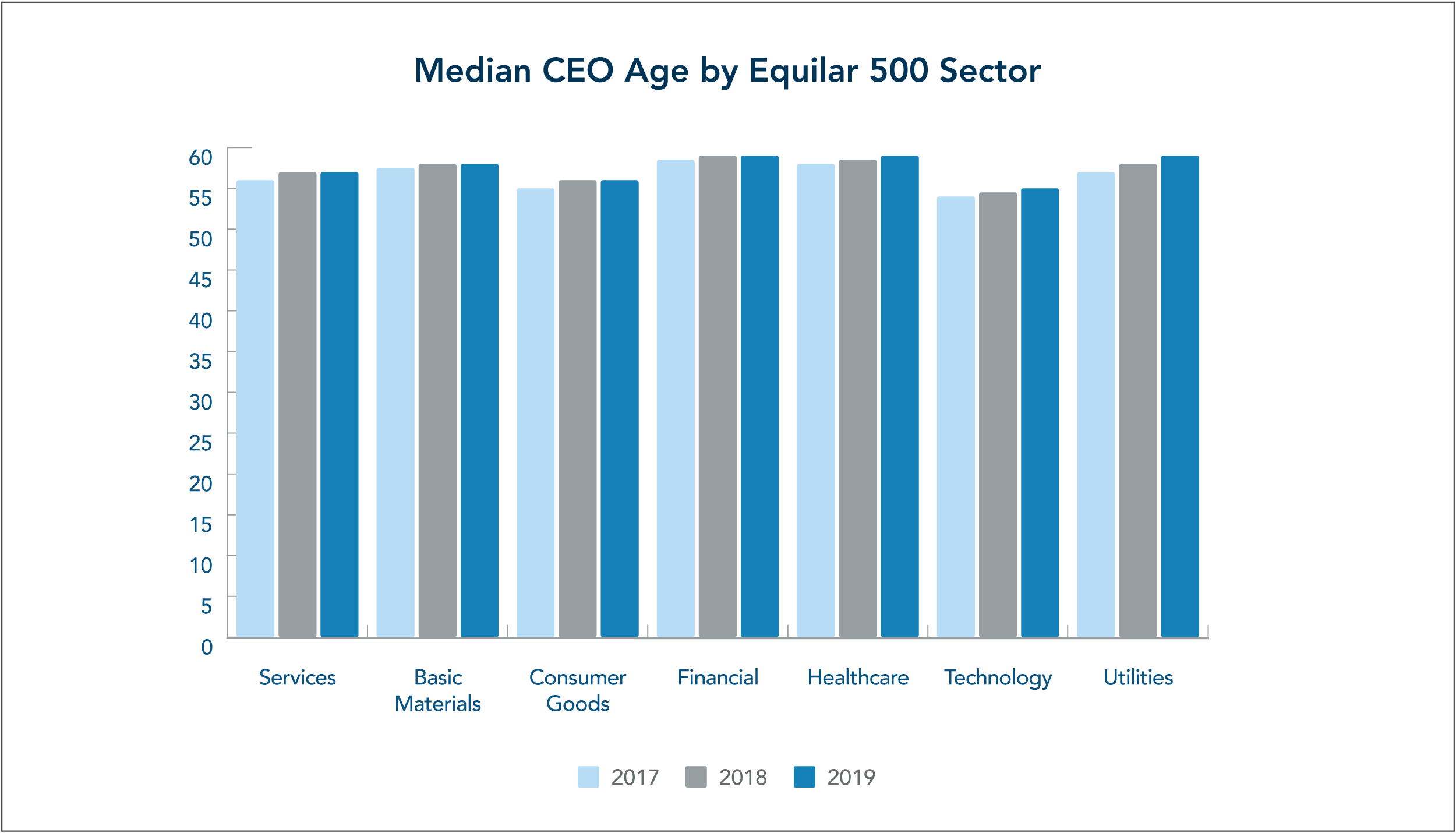The Youngest U.S. Public Company CEOs
February 10, 2020

On average, it takes decades of experience to develop the skills and build the resume necessary to become a legitimate chief executive officer (CEO) candidate. Individuals who make it to the chief executive post before the average CEO are curiosities. This study examines the youngest CEOs across the Equilar 500.
Four of the youngest CEOs, all of whom are from either the technology or service sectors, are listed in Table 1 below. The current youngest CEO in the Equilar 500 is Facebook founder Mark Zuckerberg at 35 years old. W. Erik Carlson, 38, of DISH Network is the only other CEO under 40 in the Equilar 500. Next in line are David Smith, 42, of Sonic Automotive and Matt Maddox, 43, of Wynn Resorts. Larry Page, 43, of Alphabet was in the top five youngest CEOs, as well, until Sundar Pichai, 46, recently took over Page’s role as Chief Executive of Google parent Alphabet.
Table 1
|
Company Name
|
CEO Name
|
Age
|
Gender
|
Sector
|
Facebook, Inc.
|
Mark Zuckerberg
|
35
|
M
|
Technology
|
DISH Network Corporation
|
W. Erik Carlson
|
38
|
M
|
Services
|
Sonic Automotive, Inc.
|
David Smith
|
42
|
M
|
Services
|
Wynn Resorts, Limited
|
Matt Maddox
|
43
|
M
|
Services
|
The patterns among companies with the youngest CEOs mirror those of companies with the youngest median directors, suggesting that the context of industry plays a large role in hiring strategies. The same industry challenges which motivate the hiring of younger directors may also motivate the hiring of younger executives. As mentioned in a recent Equilar study, companies with the youngest board members are largely in the technology and services sectors, which tend to struggle with disruptive technology emergence more than other sectors, such as utilities or healthcare. This trend holds true for the 50 companies with the youngest CEOs, shown in Table 2.
Table 2
|
Company Name
|
CEO Name
|
Age
|
Gender
|
Sector
|
Of the 50 companies with the youngest CEOs who submitted a proxy before April 1, 2019, 20% were companies within the services sector and 15% were companies within the technology sector. Companies within the financial, healthcare, industrial goods and utilities sectors were the least represented in Table 2. It appears the sectors that are trending towards younger leadership are embracing younger executive teams and boards in tandem. This could be beneficial for companies looking for fresh perspectives in their executive teams and boardrooms. Without a doubt, balance and diversity of opinions can only be beneficial to the success of a company. However, forgoing experience just for novelty poses its own potential dangers. Lacking more senior experience on the leadership team could greatly hinder the performance of a company, especially within sectors that tend to be dominated by young professionals who may have more industry-specific expertise than business practice expertise, such as in the technology sector.
Figure 1, Median CEO Age by Equilar 500 Sector
Despite this concern, according to a recent Wall Street Journal article regarding CEO age in the S&P 500, younger CEOs point to the fact that many of them grew up professionally during the financial crisis of 2008. They claim the intensified experience of learning how to be a corporate leader during a time of immense chaos augments the value of their experience and puts them on par with their counterparts who may have longer resumes.
Furthermore, the median age of CEOs heading Equilar 500 companies has actually increased across all sectors in 2019 compared to the two years prior (Table 3). Within sectors as well, the median CEO age has increased from 2017 to 2019, which suggests that this trend is representative of the entire Equilar 500 as a whole. Interestingly, only four of the 50 youngest CEOs in the Equilar 500 are women, implying that it still takes women longer to reach the CEO level than it takes men, even among companies making active efforts to increase diversity across their leadership.
Table 3
|
CEO Age in Equilar 500
|
|
Percentile
|
2017
|
2018
|
2019
|
10th
|
49.0
|
50.0
|
50.0
|
25th
|
52.0
|
53.0
|
54.0
|
Median
|
56.0
|
57.0
|
57.0
|
75th
|
61.0
|
61.0
|
61.0
|
90th
|
64.0
|
64.0
|
65.0
|
As shown in Table 4, companies in the financial and healthcare sectors have two of the largest spreads of CEO ages between the 10th and 90th percentiles, at 15.6 and 16.6 years of difference, respectively, in fiscal year 2019. These two sectors also have the oldest CEOs, the median and 90th percentile for each sector being 59 and 67.6 years, respectively. This may suggest that while younger CEOs are beginning to make appearances, as illustrated by the large spread between the 10th and 90th percentiles, older executives continue to provide relevant value to companies in each sector.
Table 4
|
CEO Age in Financial & Healthcare Sectors
|
|
Percentile
|
Financial
|
Healthcare
|
10th
|
52.0
|
51.0
|
25th
|
56.0
|
55.0
|
Median
|
59.0
|
59.0
|
75th
|
62.5
|
64.0
|
90th
|
67.6
|
67.6
|
90th-100th
|
15.6
|
16.6
|
Will CEO age trends continue to be determined largely by sector or will general trends begin to emerge as corporate governance principles continue to be put into question? As companies continue to diversify their boardrooms and leadership teams, it will be interesting to observe the different ways in which leaders encourage diversity of thought and how this affects company performance.
Contact

Kathleen Eberle,
Research Analyst at Equilar
Kathleen Eberle, Research Analyst at Equilar, authored this post. Please contact Amit Batish, Manager, Content & Communications, at abatish@equilar.com for more information on Equilar research and data analysis.
 Solutions
Solutions









